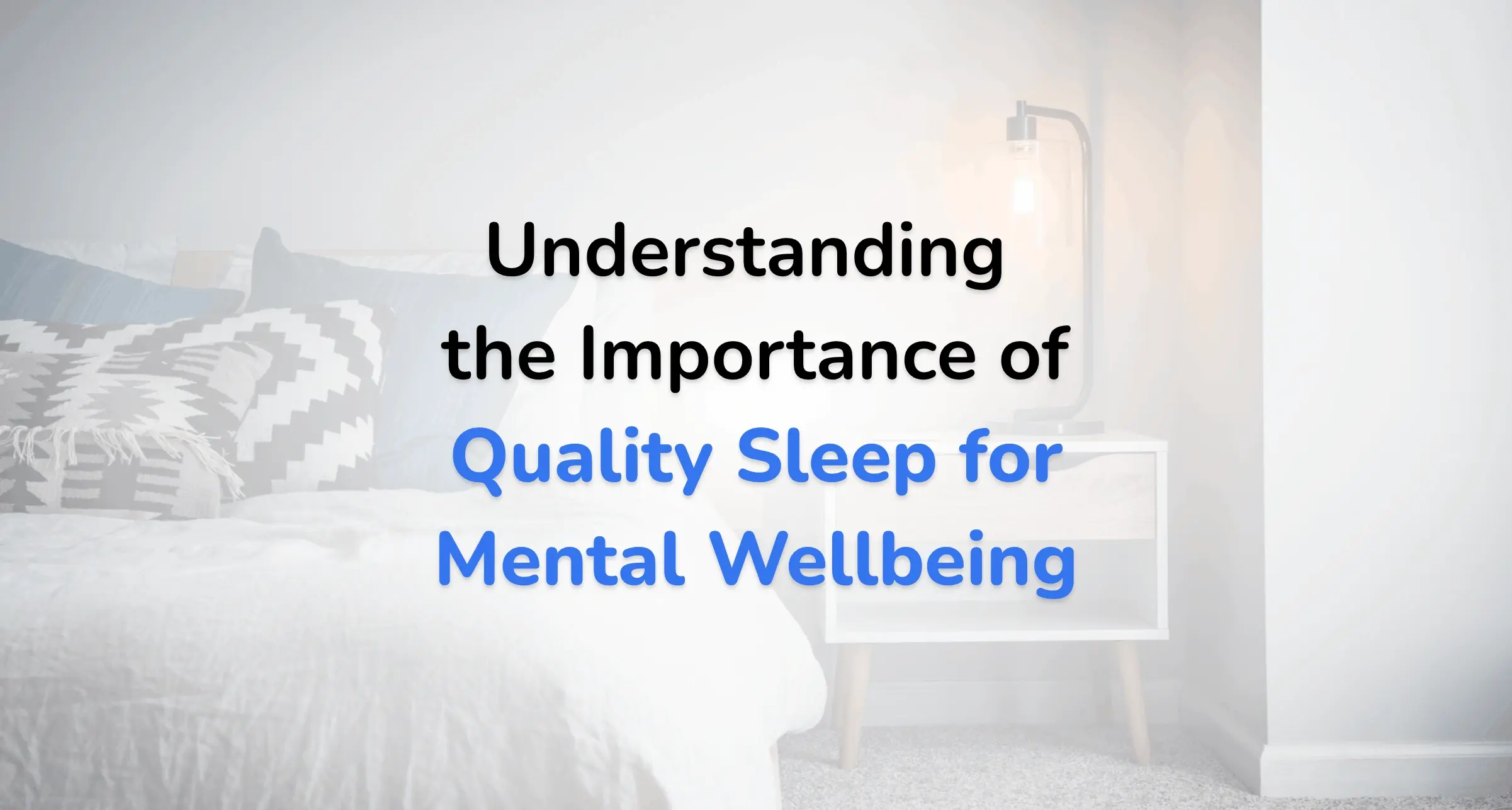
Understanding the Importance of Quality Sleep for Mental Wellbeing
March 15, 2024
In a fast-paced world where productivity often takes precedence over rest, it's easy to overlook the significance of a good night's sleep. Yet, the quality of our sleep directly impacts our mental and physical health. As we observe World Sleep Day, it's crucial to reflect on the importance of prioritising rest for our overall wellbeing.
The Silent Epidemic of Sleep Deprivation
According to the World Sleep Society, approximately 45% of the world's population has some form of sleep disorder. From insomnia to sleep apnea, the repercussions of inadequate sleep are profound and far-reaching. Not only does it impair cognitive function and memory consolidation, but it also weakens the immune system and increases the risk of developing chronic conditions such as obesity, diabetes, and heart disease.
The Link Between Sleep and Mental Health
While the physical consequences of sleep deprivation are well-documented, its impact on mental health is equally significant. Research consistently shows a bidirectional relationship between sleep and mental wellbeing. Poor sleep is not only a symptom of mental health disorders such as anxiety and depression but can also exacerbate these conditions.
Prioritising Rest in a Busy World
In a culture that glorifies productivity and equates sleep deprivation with optimisation, prioritising rest can feel like a luxury rather than a necessity. However, we must challenge this mindset and recognise that adequate sleep is a fundamental pillar of self-care. Just as we fuel our bodies with nutritious food and exercise to maintain physical health, we must also nurture our minds with quality sleep to safeguard our mental wellbeing.
Strategies for Enhancing Sleep Quality
Fortunately, there are numerous strategies we can employ to improve the quality of our sleep:
Establishing a Consistent Sleep Schedule: Going to bed and waking up at the same time each day helps regulate our body's internal clock, promoting better sleep quality.
Creating a Relaxing Bedtime Routine: Engaging in calming activities such as reading, meditating, or taking a warm bath can signal to the body that it's time to wind down. You can find helpful exercises such as calm breathing and deep muscle relaxation within the Thrive app.
Optimising Sleep Environment: Creating a cool, dark, and quiet sleep environment can minimise disruptions and enhance sleep quality.
Limiting Screen Time: Exposure to blue light from electronic devices before bedtime can interfere with the production of melatonin, a hormone essential for sleep. Limiting screen time at least an hour before bed can promote better sleep.
Avoiding Caffeine: Caffeine can disrupt sleep patterns and increase anxiety. Start by gradually reducing caffeine intake to minimise withdrawal symptoms like headaches and irritability. Go for caffeine-free alternatives such as herbal teas or decaffeinated coffee. Pay attention to hidden sources of caffeine in things like chocolate, some pain killers, and energy drinks.
As we commemorate World Sleep Day, let us pledge to prioritise rest and recognise its profound impact on our mental wellbeing. By cultivating healthy sleep habits and fostering a culture that values rest as a fundamental human need, we can pave the way for a healthier, happier society. So tonight, let's tuck ourselves into bed, embrace the tranquillity of sleep, and awaken tomorrow refreshed and renewed, ready to face the day with vigour and vitality.